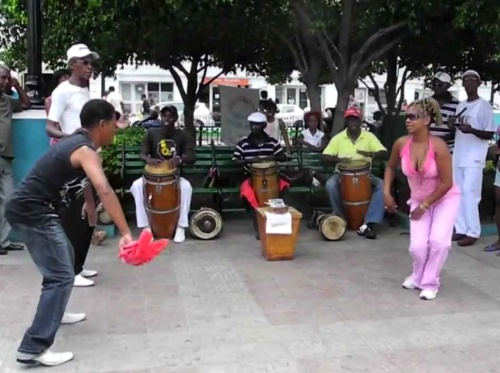With his country descending into its worst political crisis since the 2004 coup d’etat, and thousands of people demanding his resignation in the streets, in early 2016 Haiti’s outgoing president, Michel Martelly, went back to basics: He released a new song insulting and taunting in crude and sexualized terms a female journalist known to be critical of him.
Before becoming head of state in 2011, Martelly was a pop star known as Sweet Micky who performed Haitian compas (kompa direk). Micky was famous for saying or doing anything to get a reaction, and his genius was combining the image of the rock rebel with the anything-goes, upside-down spirit of kanaval, the Haitian equivalent of Mardi Gras—for example, one can find video footage of Haiti’s president performing in a halter top and miniskirt.
Bringing a similar strategy to his presidential run, he was the anti-politician who openly insulted competitors, critics, and the media. Before his election Martelly’s supporters argued that, because he was already so rich and famous, their candidate couldn’t be bribed or bought. The competition dismissed Martelly’s candidacy as a joke, at first, and the press did too, all the while giving him blanket coverage.
With support by foreign investors and the backing of the U.S., Martelly won a surprise victory. But after five years of stalled and canceled elections, rising insecurity and poverty, political violence, and accusations of corruption, Sweet Micky’s novelty wore off—and in his last weeks in power any vestiges of presidential restraint also wore off, as evidenced by the song referenced above. It may turn out that Haiti was, as it has been so many times, ahead of the historical curve, anticipating the rise of other populist celebrity political figures worldwide.
This according to “What happens when a celebrity becomes president” by Jonathan Katz (The Atlantic monthly 9 February 2016).
Above, Martelly dancing at a presentation ceremony; below, the song in question.
BONUS: Sweet Mickey performs in drag.












